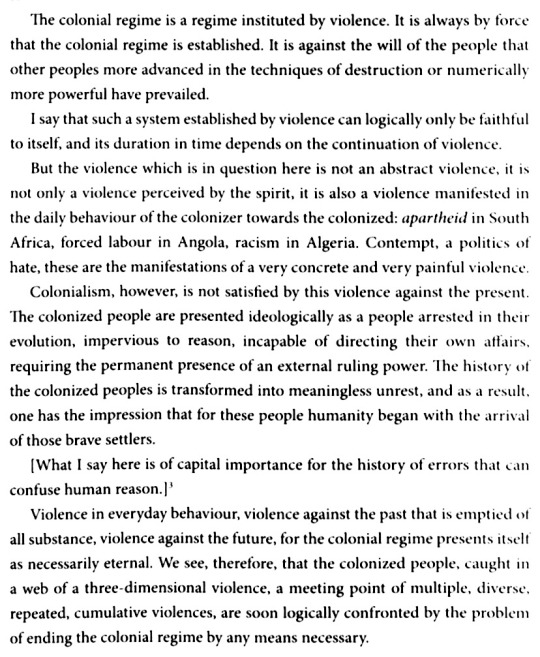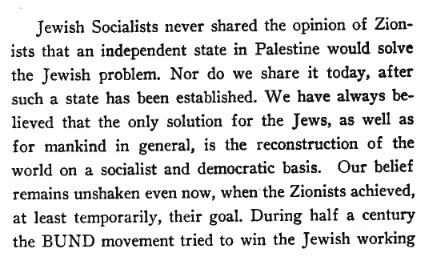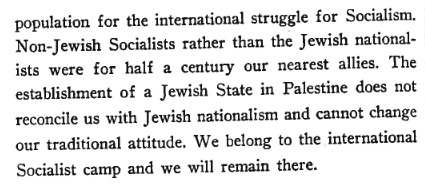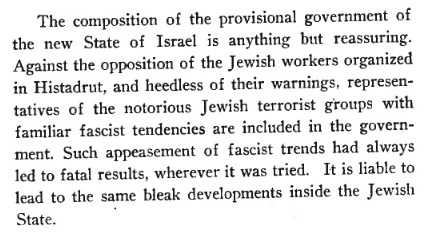Text

"It hurt to lose to Ronald Reagan. But after the election, I tried to make the transition as smooth as possible. Later, from my experience in trying to brief him on matters of supreme importance, I was very disturbed at his lack of interest. The issues were the 15 or 20 most important subjects that I as President could possibly pass on to him. His only reaction of substance was to express admiration for the political circumstances in South Korea that let President Park close all the colleges and draft all the demonstrators. That was the only issue on which he came alive."
-- Former President Jimmy Carter, on losing the 1980 election and the transition leading to the inauguration of Ronald Reagan, interview with TIME Magazine, October 11, 1982.
6K notes
·
View notes
Photo


“Devouring God: Cannibalism, Mysticism, and Ethics in Simone Weil” by Alec Irwin, quoting La Connaissance Surnaturelle by Simone Weil
2K notes
·
View notes
Text
Replacing the designation black with African American signals foremost a turn away from a primarily political category toward an identitarian marker of cultural and/or ethnic specificity; diaspora suggests a concurrent de-emphasizing of specificities in the embrace of transnational frames of reference and a return of said particularities via the comparison of black populations that differ in nationality.
Alexander Weheliye, Habeas Viscus
0 notes
Text
While thinking through the political and institutional dimensions of how certain forms of violence and suffering are monumentalized and others are relegated to the margins of history remains significant, their direct comparison tends to lead to hierarchization and foreclose further discussion. Comparativity frequently serves as a shibboleth that allows minoritized groups to gain recognition (and privileges, rights, etc.) from hegemonic powers (through the law, for instance) who, as a general rule, only grant a certain number of exceptions access to the spheres of full humanity, sentience, citizenship, and so on. This, in turn, feeds into a discourse of putative scarcity in which already subjugated groups compete for limited resources, leading
to a strengthening of the very mechanisms that deem certain groups more disposable or not-quite-human than others. In the resulting oppression Olympics, white supremacy takes home all winning medals in every competition. In other words, as long as numerous individuals and populations around the globe continue to be rendered disposable by the pernicious logics of racialization, and thus exposed to different forms of political violence on a daily basis, it seems futile to tabulate, measure, or calculate their/our suffering in the jargon of comparison.
Alexander Weheliye, Habeas Viscus (13-14)
0 notes
Text
“On one side it means generalizing the ‘enterprise’ form within the social body or social fabric; it means taking this social fabric
and arranging things so that it can be broken down, subdivided, and reduced, not according to the grain of individuals, but according to the grain of enterprises. The individual’s life must be lodged, not within a framework of a big enterprise like the firm or, if it comes to it, the state, but within the framework of a multiplicity of diverse enterprises connected up to and entangled with each other, enterprises which are in some-way ready to hand for the individual, sufficiently limited in their scale for the individual’s actions, decisions, and choices to have meaningful and perceptible effects, and numerous enough for him not to be dependent on one alone. And finally, the individual’s life itself—with his relationships to his private property, for example, with his family, household, insurance, and retirement—must make him into a sort of permanent and multiple enterprise”
Foucault, The Birth of Biopolitics (241)
0 notes
Text

Carolee Schneemann, “Hand Heart for Ana Mendieta”, 1986.
1K notes
·
View notes
Text

Albert Camus, from a diary entry featured in Notebooks, 1935-1942
508 notes
·
View notes
Text
Frantz Fanon is accurate to term decolonisation as a violent struggle to disrupt the colonial problem. The colonised are created by the coloniser. The response of the colonised therefore is determined by the conditions imposed by colonisation. The colonial suffocation is giving us no other option but to take arms and resist. In the language of the colonised therefore this is not violence. This is justice.
Pedro Mzileni, ‘Palestine Armed Struggle Is Justice, Not Violence’, Countercurrents
331 notes
·
View notes
Text
Colonialism is not a machine capable of thinking, a body endowed with reason. It is naked violence and only gives in when confronted with greater violence.
The Wretched of the Earth by Frantz Fanon
2K notes
·
View notes
Text
“Colonialism almost never exploits the entire country. It is content with extracting natural resources and exporting them to the metropolitan industries thereby enabling a specific sector to grow relatively wealthy, while the rest of the colony continues, or rather sinks, into underdevelopment and poverty.”
— Frantz Fanon, The Wretched of the Earth
3K notes
·
View notes
Text
DECOLONIAL ACTION READING
I recently compiled these to add to a comrade’s post about Land Back, but actually I think they deserve their own post as well.
Amílcar Cabral - Return To The Source
Frantz Fanon - The Wretched Of The Earth
Hô Chí Minh - archive via Marxists.org
Thomas King - The Inconvenient Indian
Abdullah Öcalan - Women’s Revolution & Democratic Confederalism
Edward Said - The Question Of Palestine
Thomas Sankara - archive via Marxists.org
Eve Tuck & K. Wayne Yang - Decolonization Is Not A Metaphor
Other key names in postcolonial theory and its practical application include:
Sara Ahmed
Homi K. Bhabha
Aimé Césaire
Albert Memmi
Jean-Paul Sartre
Léopold Séder Senghor
Gayatri Chakravorty Spivak
All of these will help you interpret and confront the realities of colonisation, and ideally help us understand and extend solidarity to comrades around the globe. Decolonise your mind, and don’t stop there!
2K notes
·
View notes
Text

Palestine will be free. (frantz fanon, the wretched of the earth)
2K notes
·
View notes
Text
So, the thing about Don Quixote.
The thing about Don Quixote is that he tilts at windmills - tilts in the archaic sense of ‘charge at with a lance,’ because it’s the story of a guy who read so much chivalric romance that he lost his mind and started larping as a knight-errant. He was, if you’ll pardon the phrasing, chivalrybrained.
The thing about Don Quixote is, sometimes people take it as this story of whimsical and bravely misguided individualism or ‘being yourself’ or whatever, and they’re wrong. If it took place in the modern day, Don Quixote would absolutely be the story of a trust fund kid who blew his inheritance being a gacha whale until his internet got cut off so now he wanders around insisting that people refer to him as ‘Gudako.’
But the real thing about Don Quixote is that it was published in the early 1600s, and the thing about the 1600s is that Europe was one big tire fire. This is because 1600s Europe was still organized around feudalism (or ‘vassalage and manorialism’ if ya nasty), which assumed that land (and the peasants attached to it) were the only source of wealth. And that had worked just fine (well, ‘just fine,’ it was still feudalism) for a long time, because Europe had been a relative backwater with little in the way of urbanization or large-scale trade.
That was no longer true for Europe in the 1600s. The combination of urban development, technological advances, and brutal Spanish colonialism meant that land was no longer the sole source of wealth. Sudden there was a new class of business-savvy, investment-minded upwardly-mobile commoners, and another new class of downwardly-mobile gentry who simply couldn’t compete in this new fast-paced economy. Cervantes saw this process with his own eyes.
One of the symbols of this new age was the windmill, a complicated piece of engineering that was expensive to build but would then produce profits indefinitely - in other words, a windmill was capital.
The thing about Don Quixote is, when he tilts at windmills, he has correctly identified his nemesis.
16K notes
·
View notes





